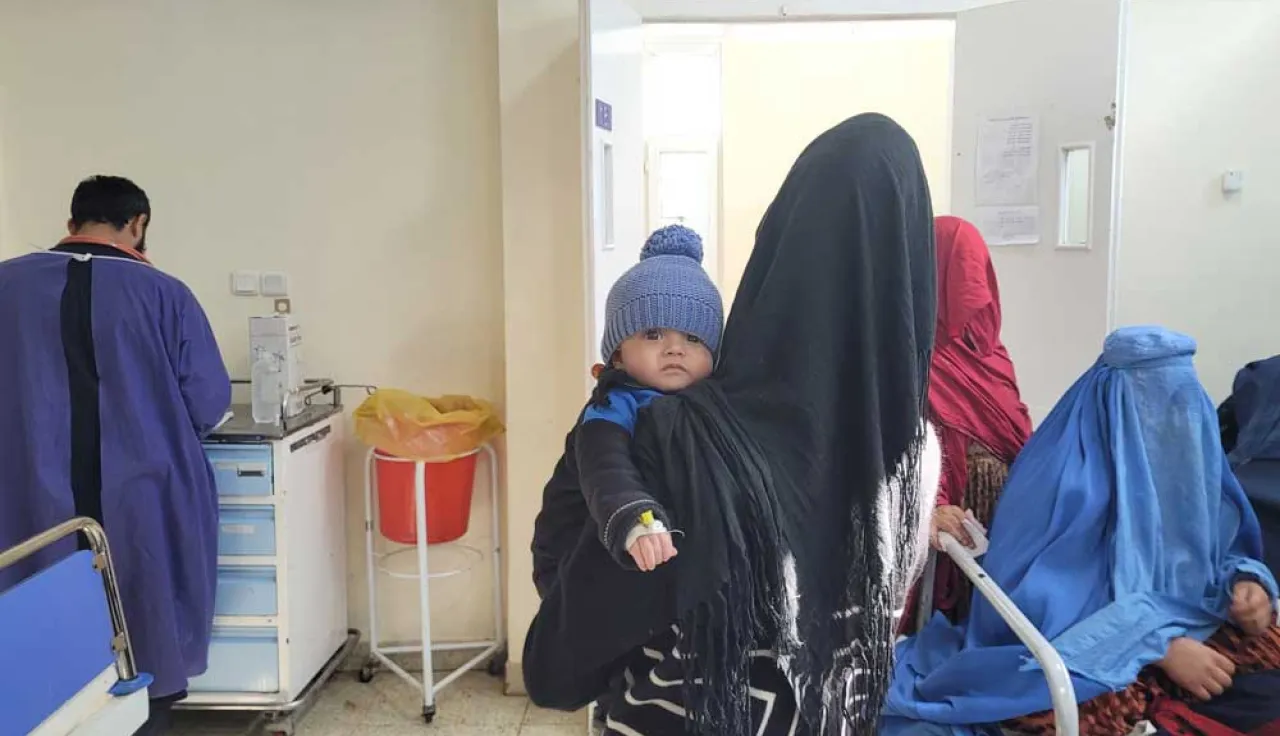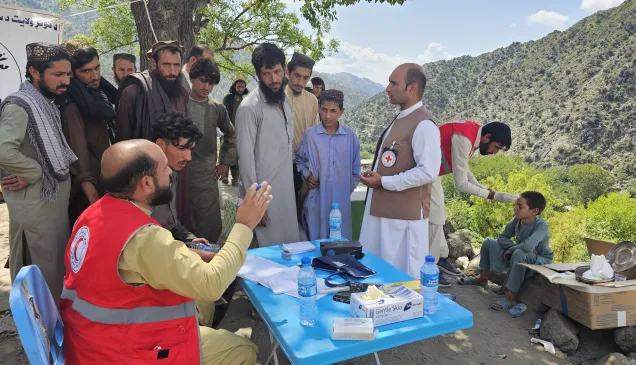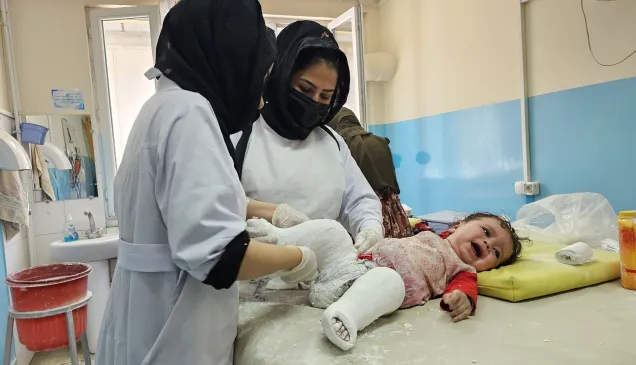At 33 ICRC-supported hospitals across the country, child malnutrition cases are already 90 percent higher in 2022 compared to all of 2021, rising from 33,000 cases to over 63,000 so far this year. Meanwhile, at an ICRC-supported children’s hospital in Kabul, the number of children under 5 being treated for pneumonia has risen 55 percent in 2022 versus the same period last year.
“The poverty level in Afghanistan has increased compared to past years. Most people cannot buy material to keep their homes and children warm. They also cannot afford to feed their children properly so pneumonia cases are rising, and the number of malnutrition cases linked to pneumonia will rise, too,” said Dr. Abdul Qayum Azeemi, an ICRC doctor who coordinates ICRC’s programme in Kabul’s Indira Ghandhi hospital.
Despite a significant decrease in the intensity of the fighting, the humanitarian situation in Afghanistan remains alarming. More than half the population (24 million people) need humanitarian assistance and half (20 million people) are acutely food insecure. The deepening economic crisis further impacted by international sanctions and the economic consequences of the Russia-Ukraine international armed conflict makes it impossible for millions of Afghans to make ends meet. Wheat, cooking oil and fertilizer prices have risen. People lost income sources and used up their financial reserves. The agricultural sector has also been impacted by earthquakes, droughts and floods.
“Afghan families face an impossible choice: To eat or to buy heat. And, really, they can’t afford either, resulting in a frightening rise in malnutrition and pneumonia cases,” Martin Schüepp, ICRC’s director of operations, said during his visit to Afghanistan this week. “Aid organizations can’t answer all the overwhelming cries for help. That’s why we’re urging states and development agencies to return to Afghanistan to continue providing support to the millions here in need.”
Afghans the ICRC recently spoke with shared their concerns about the hardships they face:
Haji Wali, day labourer and father of an 8-month-old with pneumonia: “If he is treated here and we take him home he will get sick again because we cannot afford to heat our home and provide him and my other children with proper nutrition. I already lost one of my children to pneumonia. But who should I call for help?”
Mahjabeen, mother of five: “Our living conditions have worsened. There is no source of income today, and no money to take my children to the clinic when they are sick. Winter is already here, and we don’t have anything to burn and warm my children. I get very sad to see them in this situation when they don’t even have clothes to wear.”
Abbas, a wood seller for over 10 years: “There are no buyers. People don’t have money. They can’t even find a job that will allow them to afford a meal. The people have no choice other than their kids freeze in the winter or burn trash to keep themselves alive.”
To provide life-saving assistance to Afghans, the ICRC is supporting 33 hospitals with a total capacity of more than 7,000 beds. The support includes paying for medical supplies, running costs and salaries to nearly 10,500 health workers – a third of whom are women. Those health services reach an estimated population of 26 million people. The ICRC also helps support 46 basic healthcare centers and one hospital run by the Afghanistan Red Crescent Society. This year, the ICRC also provided multipurpose cash grants to over 10,000 most vulnerable families (80,000 individuals) across Afghanistan to help them meet their essential needs.
“Dedicated and courageous female and male health staff do their best to save lives every day, but the international community must step up its support as humanitarian organizations cannot effectively replace a functioning public sector in the long term,” Mr Schüepp said.
Footage available from the ICRC Video Newsroom
Easy to preview and to download https://www.icrcnewsroom.org/
For more information, please contact:
Lucien Christen, ICRC Kabul, lchristen@icrc.org, +93 729 140 551 (WhatsApp & Signal)
Parwiz Ahmad Faizi, ICRC Kabul, pfaizi@icrc.org +93 729 110 672
Fatima Sator, ICRC Geneva, fsator@icrc.org, +41 79 848 49 08
Jason Straziuso, ICRC Geneva, jstraziuso@icrc.org, +41 79 949 35 12




